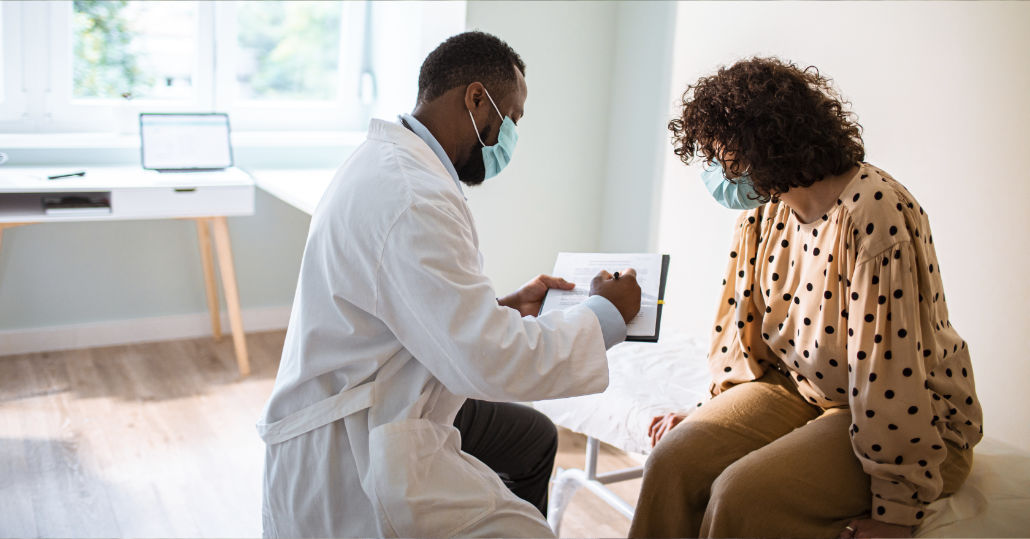What Should You Expect in a Life Insurance Health Exam? A Complete Guide

A life insurance health exam is a part of the underwriting process and helps determine your premiums. It goes without saying that the healthier the applicant is, the lower the premiums will be. However, keep in mind that there are other factors that also affect your rating (age and gender, for starters).
Let’s see what you can expect and how you can prepare for the exam.
What to Expect From the Health Exam for Life Insurance
Typically, you will be asked to answer questions1 about your health history, medications you take (if any) and recent medical treatments (if any).
Presently, the situation is a bit specific due to the COVID-19 pandemic, so you should also expect some related questions. Usually, these refer to your recent travels, any symptoms you may have experienced in the past two weeks, or any potential contacts with people who have been diagnosed with COVID-19. If the answer is “yes,” you will be asked to reschedule your medical exam at a later date.
After answering the questions, the exam will commence. While some people may be nervous, it is important to underline that this is, actually, a rather straightforward process. The paramedics might do the following:2
- Check your pulse
- Take your blood pressure
- Measure your height and weight
- Collect a blood and urine sample
Depending on the insurance company’s requirements, you may also need to undergo an EKG, but this by no means applies to all applicants.
Typical Life Insurance Health Exam Questions
Insurance companies look for common health issues and lifestyle choices known to impact longevity. Hence, you can expect a general questionnaire, for example on:
- High cholesterol
- Diabetes
- High blood pressure
- Nicotine and recreational drugs
Preparing for a Life Insurance Health Exam
Firstly, you should expect that the insurance company will provide you with some guidelines for your exam. It is commonly recommended to fast for a couple of hours before the exam, as food affects blood and urine samples.
Due to that, it is recommended to schedule your exam in the morning, preferably first thing in the morning (so you don’t have to go hungry). Secondly, get hydrated prior to the exam (it will make it easier for the technician to collect the samples).
Additionally, since your body mass index (BMI) is also being considered, don’t wear heavyweight clothing.
If you have any medical records, keep them handy. It will make it easier for you to answer the questions.
What Happens After Your Life Insurance Exam?
It typically takes a few weeks for the insurance company to process the health exam results. This shouldn’t worry you – they are indeed looking for the common indicators linked to shorter life expectancy.
This doesn’t mean that high cholesterol levels will result in you being declined a policy or offered expensive premiums.
However, if there are any uncommon or suspicious lab test results, the insurance company may ask you to do a follow-up exam.
How Much Does the Exam Cost?
Not a penny. The insurance company covers the costs of the exam.
How Long Does a Life Insurance Health Exam Last?
Typically up to 30 minutes (questions + the actual medical exam).
Can I Use Recent Exam Results?
A life insurance medical exam that has been taken in the past two years can sometimes be used by the insurance company to determine your premiums.
Since applicants tend to compare offers (and they don’t know what the offer will be before undergoing a health exam), they may decide to not accept the offer from their first-choice insurance company. In that case, some insurance companies will accept the health exam results you already have, especially since they’re paying for it.
What Happens if You Fail Your Life Insurance Health Exam?
There are typically two outcomes in this situation. Either you have a health problem you’re unaware of or you have lied on your application.
In the first case, you may obtain your lab results through our laboratory of choice, ExamOne. Instructions will be provided at the time of the exam.
In the second case, you may either be required to do a follow-up exam or be denied coverage.
Conclusion
Life insurance health exams are pretty straightforward with no unpleasant surprises. In most cases, the insurer will give you tips on how to prepare, and if they don’t, go ahead and ask.
Follow the tips on how to prepare from above and remember to keep your medical records handy, if applicable. The most important things to remember are to fast, hydrate, and to not work out beforehand (24 hours).
The exam lasts between 20 and 30 minutes, on average, and can take place wherever you choose (your home or doctor’s office).
Finally, it is highly recommended to familiarize yourself with your coverage terms. Most of them accept previous medical exam results, but make sure to inquire beforehand.
1 TheBalance.com, Health Exam for Life Insurance, Mila Aroulo, 2020, accessed 1/18/21
2 Forbes.com, Paramedics Responsibilities, Cameron Huddleston, 2020, accessed 1/18/21
This is designed to provide general information on the subjects covered. The Savings Bank Mutual Life Insurance Company of Massachusetts. Woburn, MA. © 2021 All rights reserved. NAIC #70435. 21-4042